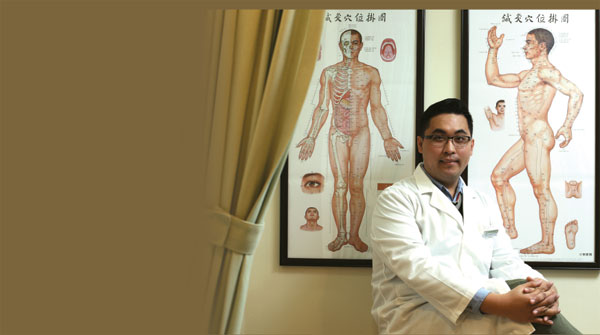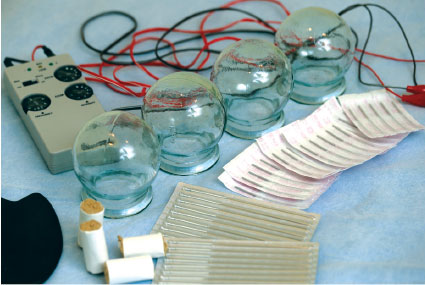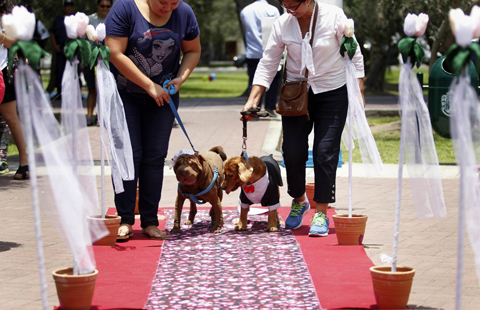Just what the doctor ordered
Updated: 2015-02-13 14:15
By Selena Li(HK Edition)
|
||||||||
|
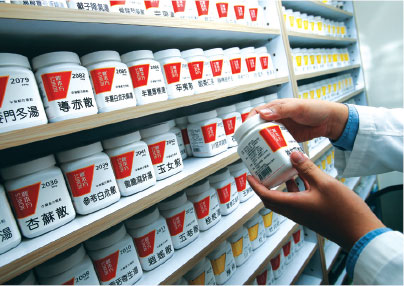 Many customers of clinic chain Conduct choose traditional healing over Western medicine as they feel traditional Chinese medicine is more holistic. Photos by Edmond Tang / China Daily |
The co-founder of a traditional Chinese medicine clinic chain in Hong Kong is passionate about breaking stereotypes and bringing traditional healing onto a modern platform. Selena Li reports.
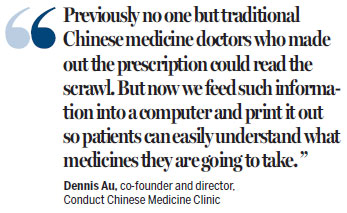
Dennis Au, a 24-year-old graduate from the School of Chinese Medicine at Hong Kong Baptist University (HKBU), finds himself sitting in a private clinic, waiting to be "interrogated" by the next patient. He is also growing a bit tired of patients' doubt and distrust about the traditional Chinese medicine (TCM) industry.
That was in mid-2005 and, practicing his profession over the next three years, Au sensed that even patients who received proper treatment tended to give rather biased feedback, basing their judgment on the age and seniority of the doctors.
"Young practitioners always share a common view: Seniority shouldn't be the only factor to judge a Chinese medicine practitioner," Au said.
Au wished there was a way to amplify the advantage that graduates have over the doctors operating mom-and-pop clinics.
"We learned about Western medicine at college so that we are able to take a holistic view of diagnosing a disease and let the patient compare the two different treatments," Au said.
Au was convinced by his five-year school fellow Peter Peng to open their own clinic business offering treatments in TCM - a broad range of medicinal practices dating back thousands of years - including various forms of herbal medicine, acupuncture, massage, exercise and dietary therapy.
"We hoped to show that there is a qualitative change when new blood like us is brought to the ancient industry," Au said.
Trust and believe
A frequent visitor to Chinese medicine clinics in his childhood, Au is a strong believer in the science and efficacy of TCM.
"When we graduated, there were not as many jobs as we expected, because public hospitals and Chinese clinics could not take in nearly a hundred students from three universities," Au said.
In a city where a good number of TCM practitioners and store owners have actually inherited the business, the field is seen as economically unattractive by many young people.
The monthly starting salary could be as low as HK$6,000 several years ago.
With soft loans from the Hong Kong Federation of Youth Groups, Au and Peng gathered around HK$200,000 during the 2008 economic downturn and invested in their first clinic, which they named Conduct.
However, the only affordable spot they could find was on the second floor of Nan Fung Industrial Centre in Tsuen Wan, which was not prominent enough to attract passers-by.
Besides, the pair could not afford a janitor or a receptionist, and had to work at other clinics to sustain the operation.
"It was a bold move to open a clinic and introduce new things to the practice," Au said.
What Au defines as new are threshold practices that helped him go down the right path to attract customers. It took the Conduct founders three months to secure a stable customer base.
Most Chinese routinely use a variety of herbs and potions and other elements of TCM. But when confronted with serious disease, urban Chinese head straight for the hospital, where medicine is generally of the Western variety.
On the other hand, many customers told Au that they chose to visit traditional healers as they felt their treatment was more holistic than Western medicine.
Most Viewed
Editor's Picks

|

|

|

|

|

|
Today's Top News
China to import more iron ore from Vale
Mexico makes moves to attract more Chinese tourists
Brazil, Peru and China to specify railway details
Growing up recluse in a dazzling world of Manhattan
Apple studies self-driving car: auto industry source
Second-longest railway built overseas by China rolls out
Graft buster publishes corruption cases in environmental sector
2 deadly shootings within hours in Copenhagen
US Weekly

|

|
